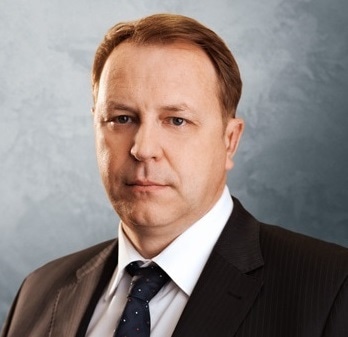Environmental performance overview

In 2017, the Company completed the first stage of its environmental programme, with Talnakh Concentrator reaching the design processing capacity and recovery rates. According to our estimates, in 2017, given the Nickel Plant shutdown in 2016, the total sulphur dioxide emissions reduced by 5% across Polar Division and by 30–35% within the city of Norilsk. Last year we announced the launch of the second stage of our environmental programme, which includes the Sulphur Project in Norilsk and optimisation of the smelting capacity at Kola MMC. As a result, we plan to cut the sulphur dioxide emissions by 75% in Norilsk by 2023 and by 50% at Kola MMC as soon as in 2019
Sergey Dyachenko First Vice President and Chief Operating Officer of Nornickel
Nornickel successfully passed an independent recertification audit of its Corporate Integrated Quality and Environmental Management System (CIMS). The auditors of Bureau Veritas Certification confirmed CISM compliance with the ISO 14001:2015 and ISO 9001:2015 requirements and praised its strengths.
Kola MMC completed a project designed to dispose of saline effluent from nickel refining operations in Monchegorsk preventing liquid nickel production waste from polluting the environment.
As 2017 marked the Year of Environment in Russia and 100th Anniversary of the Russian Nature Reserves, Nornickel launched Let’s Do It, an environmental marathon organised across the Company’s footprint as a corporate volunteering project.
At the end of 2017, Nornickel’s Polar Division completed a project to redirect emissions from slag and matte mixers and other aspiration gases from low-height sources to Copper Plant’s flue-gas stack DT-1. This created better conditions for the dispersion of emissions and reduced ground-level concentrations of pollutants in the residential area of Norilsk.
Nornickel’s management team considers environmental protection an integral part of the production process. The Company complies with the applicable laws and international agreements and is committed to reducing emissions, on a phased basis, and sustainable use of natural resources.
Nornickel’s environmental policy focuses on the following priorities:
- phased reduction of pollutant air emissions, primarily sulphur dioxide and solids;
- consistent reduction of wastewater discharges into water bodies;
- development of waste disposal sites to reduce human impact on the environment;
- zero pollution in maritime cargo transportation and vessel operation;
- sustainable use of natural resources and introduction of eco-friendly technologies;
- involvement with environmental public-private partnership projects;
- conserving biodiversity across geographies of our production operations.
Nornickel’s management team considers environmental protection an integral part of the production process.

Environmental Management System
In 2017, the environmental management system (EMS) continued to operate as part of the Corporate Integrated Quality and Environmental Management System (CIMS). This enabled the Company to harmonise environmental and quality management initiatives with the operations of other functions (such as production management, finance, health and safety). With this approach, the Company is better fit to streamline its environmental efforts and enhance overall performance.
With the EMS, Nornickel benefits from:
- secured priority funding for environmental initiatives;
- higher environmental awareness among employees;
- better public perception;
- stronger competitive edge in the domestic and international markets;
- demonstrating a global standard of environmental compliance to customers and other stakeholders, and winning the trust of customers who require the supplier to have an effective EMS;
- additional opportunities for recognition in the international context and in global markets;
- improved investment case.
Throughout 2017, the Company carried out internal audits as part of the CIMS. In line with international standards and Norilsk Nickel’s by-laws, internal audits were conducted by specially trained and competent personnel:
- 18 EMS internal audits were held at the Company’s Head Office (as part of the CIMS internal audits);
- 66 internal audits were held at Polar Division, Polar Transport Division and Murmansk Transport Division (17, 25 and 24 audits, respectively);
- 40 EMS internal audits were held at Kola MMC (as part of the CIMS internal audits).
To confirm compliance of the EMS with ISO 14001, the Company engages Bureau Veritas Certification (BVC) to conduct surveillance audits once a year and recertification audits once every three years. In November 2017, an EMS recertification audit was held as part of the CIMS at the Company’s Head Office in Moscow, Polar Division's production sites in Norilsk, Polar Transport Division (Dudinka) and Murmansk Transport Divisions (Murmansk).
The audit confirmed that MMC Norilsk Nickel’s EMS complies with ISO14001:2015 (Compliance Certificate No. RU228136 QE-U of 4 December 2017). Based on the audit findings, BVC issued recommendations on potential improvement areas and highlighted the overall strengths of the Company’s EMS.
In 2017, the EMS operated in accordance with the new version of ISO 14001:2015. To comply with this international standard, among other things, the Company revised its Environmental Policy approved by MMC Norilsk Nickel’s Board of Directors (resolution No. GMK/33-pr-sd of 5 October 2017).
In line with ISO 14001 and principles of environmental openness and transparency, the Company cooperates with the legislative and executive authorities, control and supervision agencies, international and public organisations, mass media, shareholders, investors, local communities and other stakeholders.